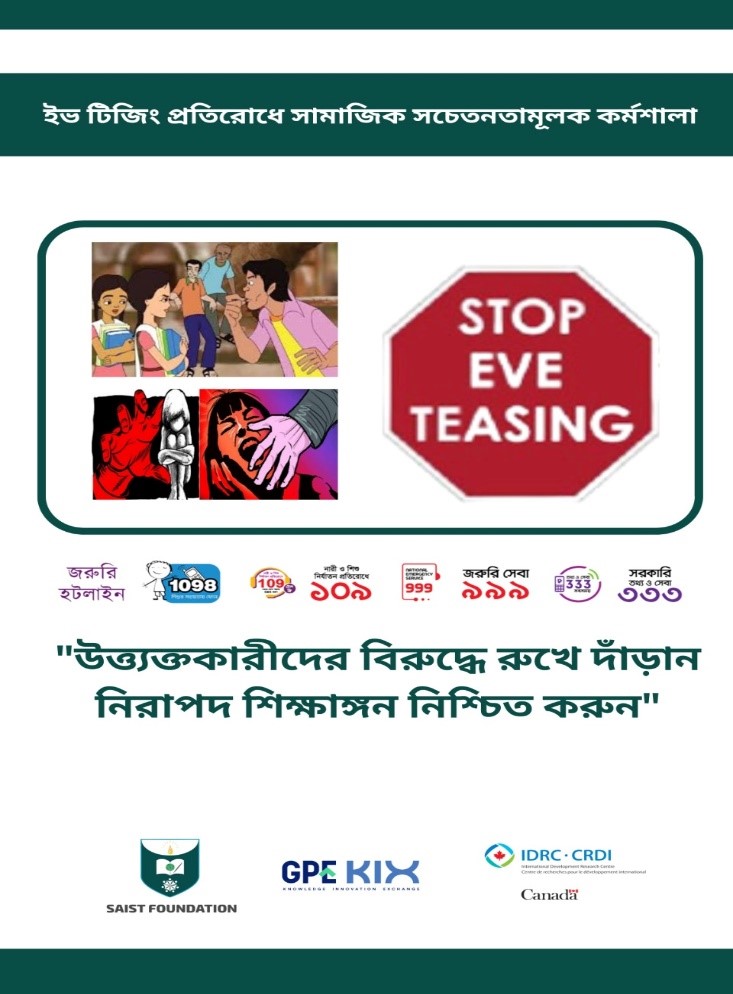Sexual harassment involves unwelcome advances, comments, or conduct of a sexual nature that creates a hostile or intimidating environment for the victim. In Bangladesh, this problem can happen in various settings, such as workplaces, educational institutions, public spaces, and even in online platforms. In 2021, a study by the Bangladesh National Women Lawyers' Association (BNWLA) revealed that approximately 87% of women have experienced sexual harassment in public transportation. Similarly, another study by ActionAid Bangladesh (2020) reported that 72% of female workers in the ready-made garment (RMG) industry have experienced sexual harassment in the workplace. Additionally, Bangladesh Bureau of Statistics (BBS) report in 2017 documented that 68% of students in higher education institutions have exposed to some form of sexual harassment.
Sexual harassment is a deeply concerning issue affecting individuals across the globe, and Bangladesh is no exception. The SAIST Foundation, a non-profit research organization in Bangladesh, has taken a proactive stance in addressing sexual harassment as part of preventing absenteeism among school students. SAIST survey, among around 500 secondary school students, found that 10% of students from the treatment group and 7% of students from the control group reported experiencing different forms of sexual harassment. This result suggests that sexual harassment is a significant problem in the secondary schools. Surprisingly, among the harassed group of students, 96% in the treatment group and 100% in the control group were female. Female students experienced harassment mostly (70%) on their way to school or when they returned from school to home. More than half of the students from the treatment group reported that they experienced harassment at least once or twice, while the rest experienced it quite often. Regarding the type of harassment, most of the students in the treatment group reported that they were followed from a close area (55.17%), people caste bad looks at them (34.48%), or passed bad comments on their dress or appearance (24.14%). 67.86% of the students in the treatment group sometimes talked to their parents about it, while one-third of them (32.14%) did nothing as it becomes a daily phenomenon. Among the harassed students in the treatment group, 17.50% reported that they thought of dropping school due to the incidents.
SAIST foundation conducted anti-harassment sessions for more than 200 students in the intervention schools to create awareness among students. . The initiative empowers students to become advocates against sexual harassment. It encourages them to report incidents, creating a culture where victims are heard and supported. SAIST has conducted the sessions as part of the study “Effectiveness and Scalability of Programs for Children Who Are Out of School and At Risk of Dropping Out in Bangladesh”, funded by the Global Partnership for Education’s (GPE) Knowledge and Innovation Exchange (KIX) and the International Development Research Centre (IDRC).
As sexual harassment is a grave issue in Bangladesh, impacting women and girls in various aspects of their lives and educational attainment, SAIST Foundation's "Speak Up" initiative is a commendable effort to combat sexual harassment by educating students and encouraging them to report incidents.
+8801793593339

